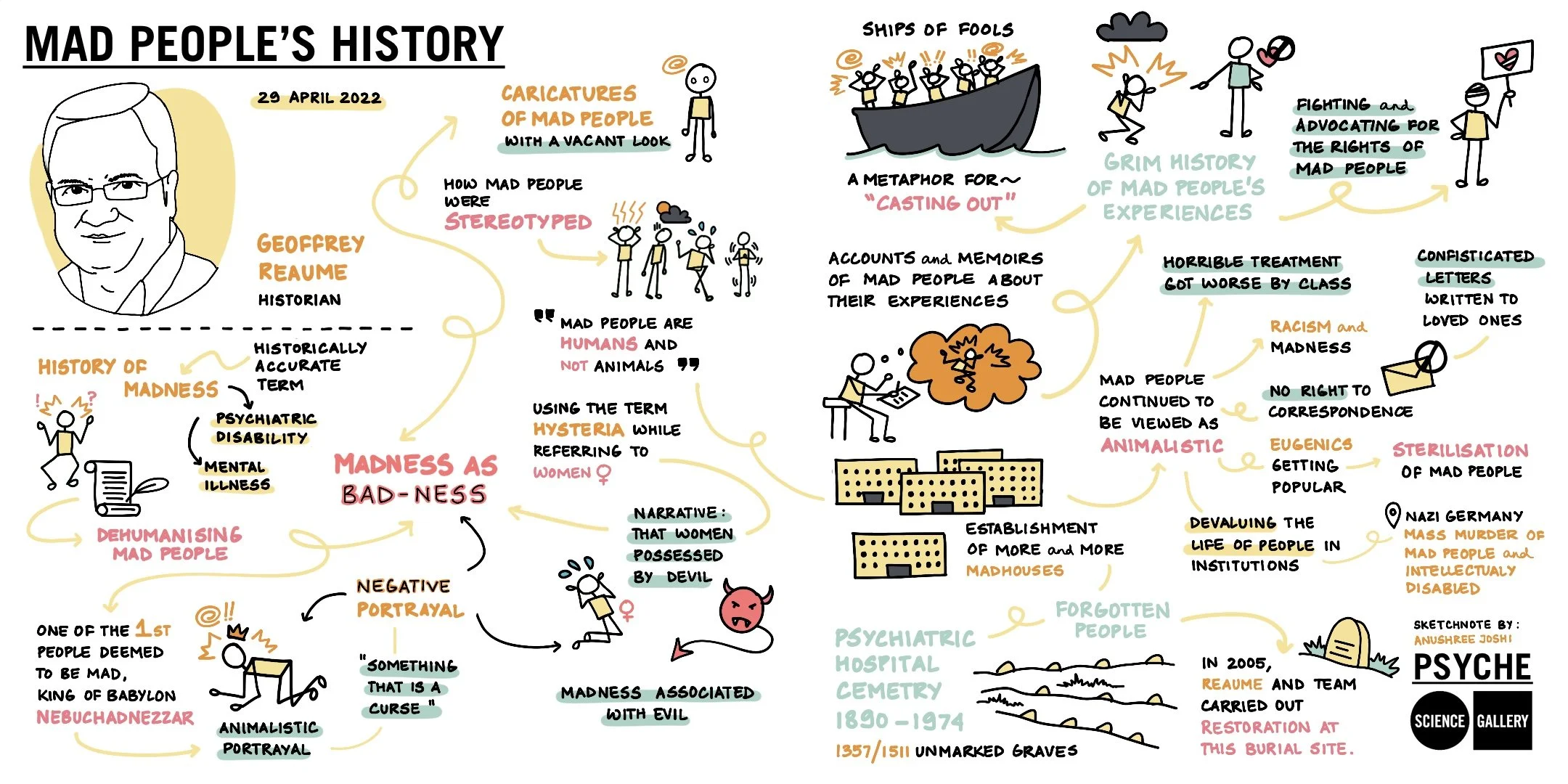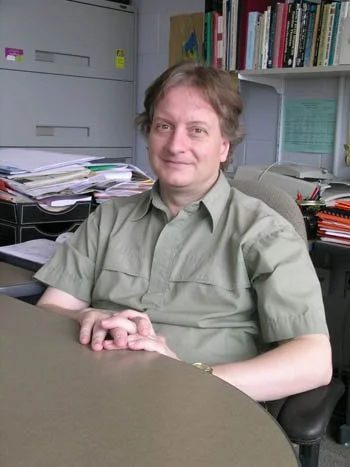Mad People’s History
In this talk, Geoffrey Reaume examined how madness had been expressed and interpreted, from ancient times to the present, with an emphasis on the period since the eighteenth century. Where do diverse concepts of madness come from? How have these ideas changed over time? How have mad people viewed their own experiences?
The talk surveyed the factors that have influenced interpretations of what it means to be mad, including activist efforts which have challenged who gets to determine what madness means and why. The primary focus of study was on North America and western Europe, though sources from other parts of the world were also included.
About the Historian
Geoffrey Reaume is Associate Professor in Critical Disability Studies at York University in Toronto, Canada. He earned his PhD in History (1997) at the University of Toronto and his work was published as a book, Remembrance of Patients Past: Patient Life at the Toronto Hospital for the Insane (OUP, 2000). His study was made into a play performed by psychiatric survivors in Toronto from 1998–2000. Reaume is a co-editor with Brenda LeFrancois and Robert Menzies of Mad Matters: A Critical Reader in Canadian Mad Studies (2013). He created the first university credit course in Mad People’s History, which he has been teaching since 2000.





